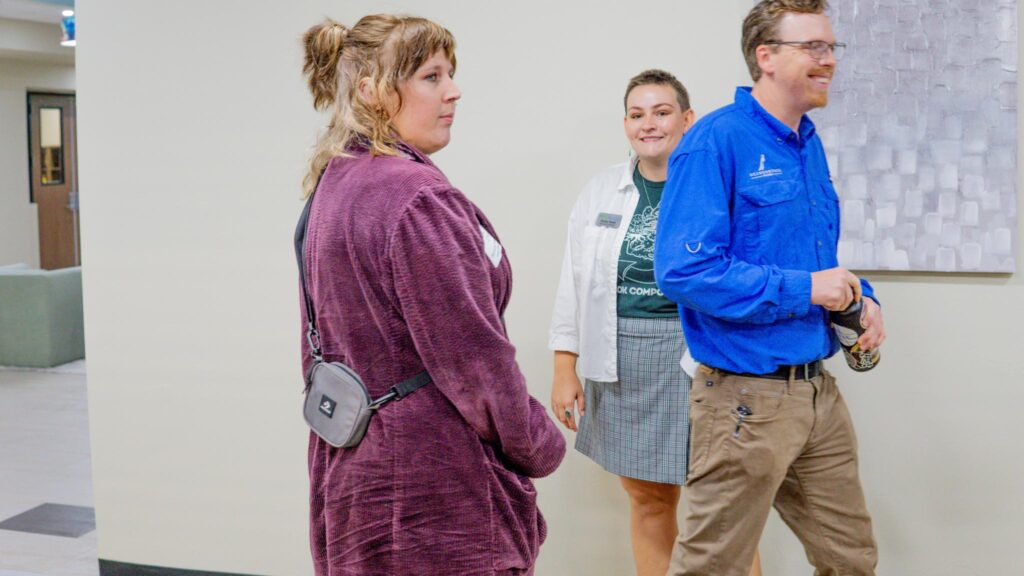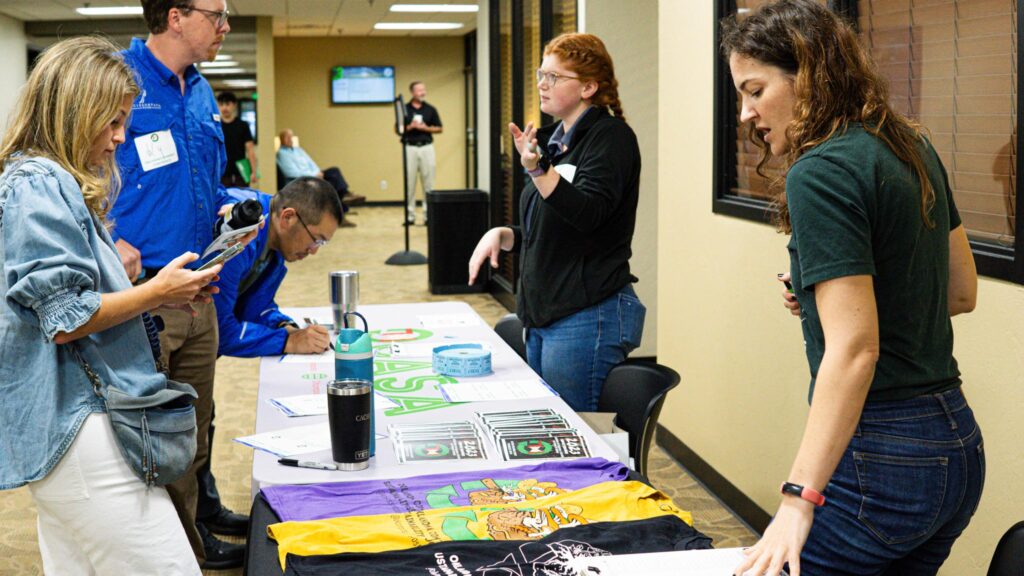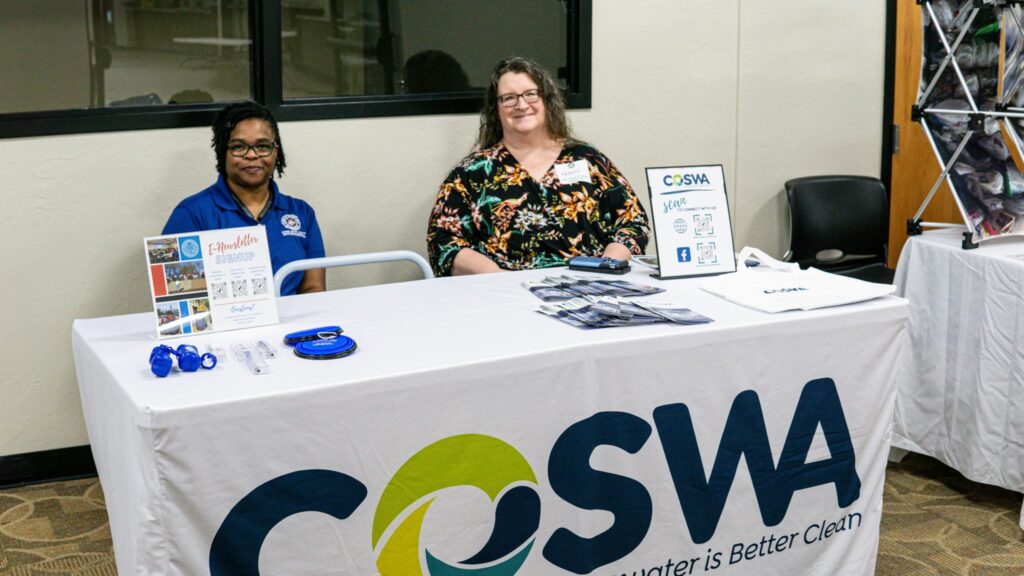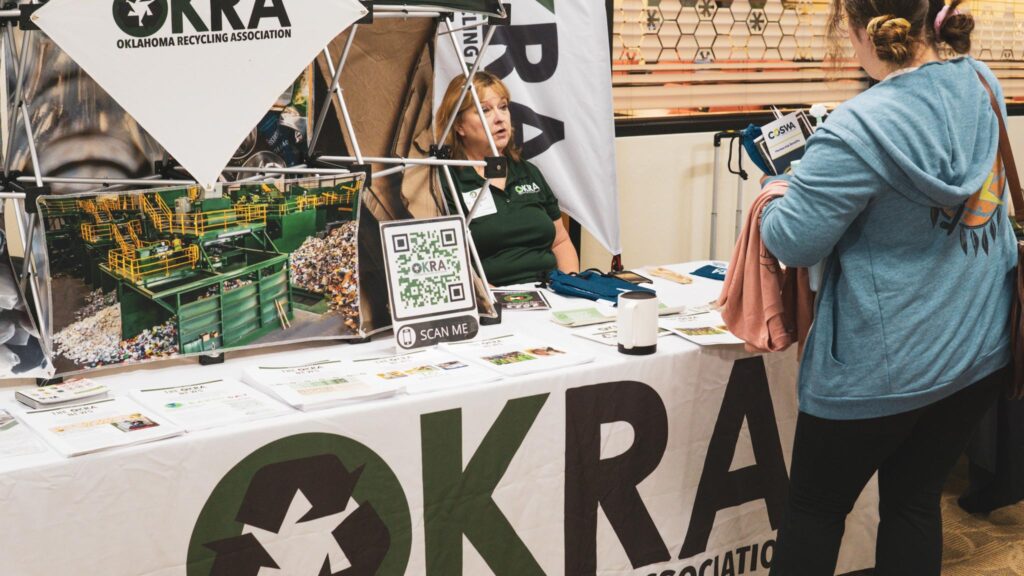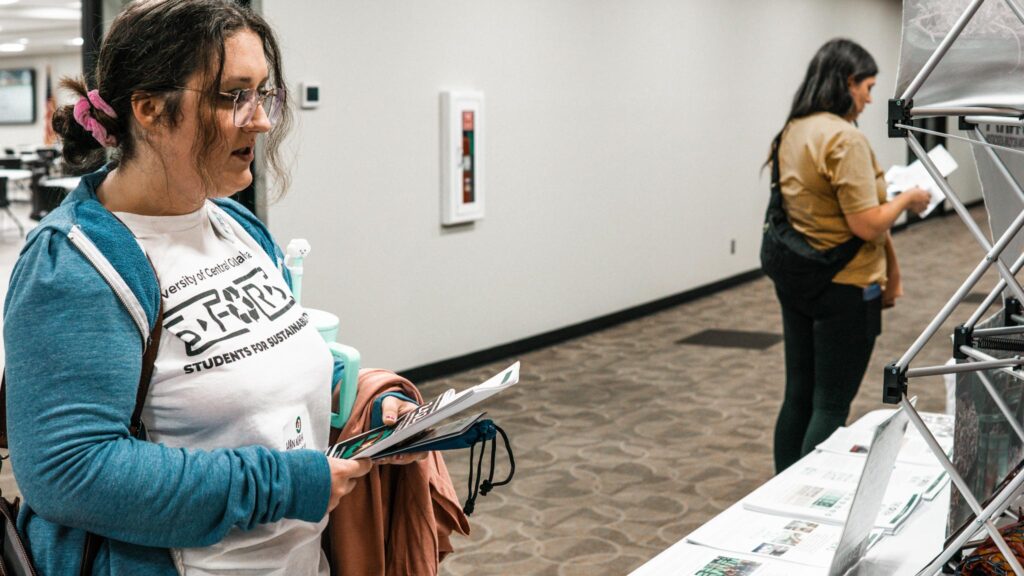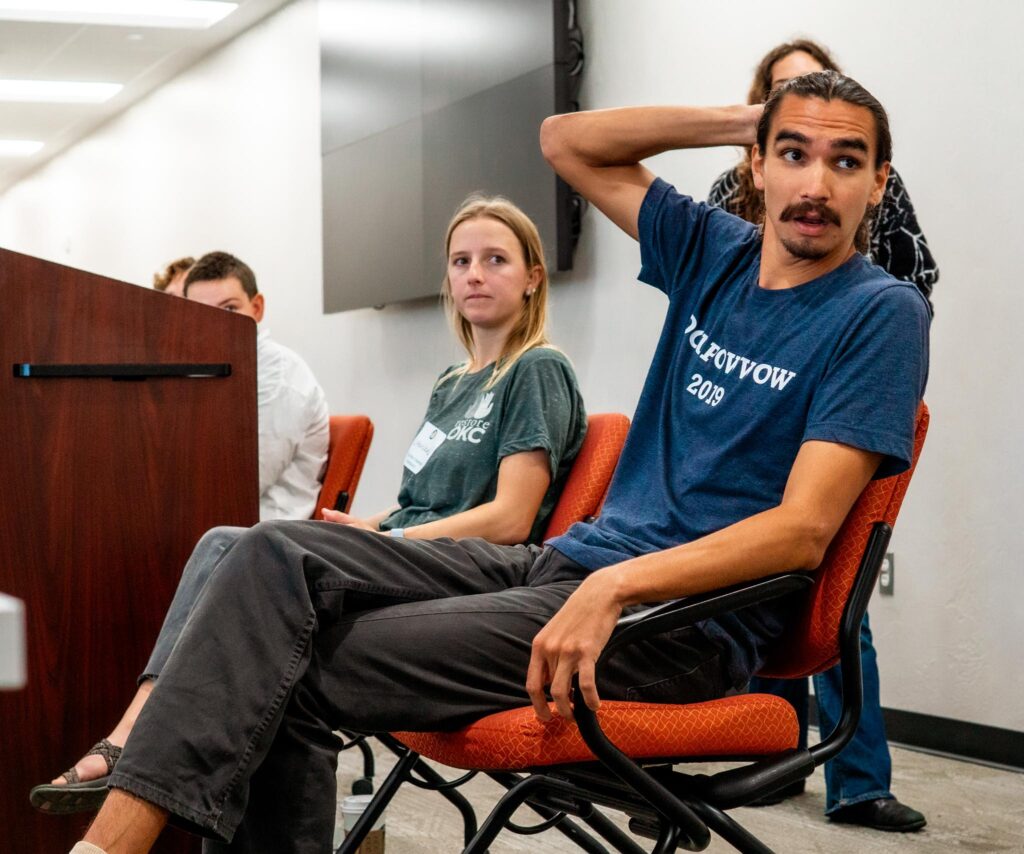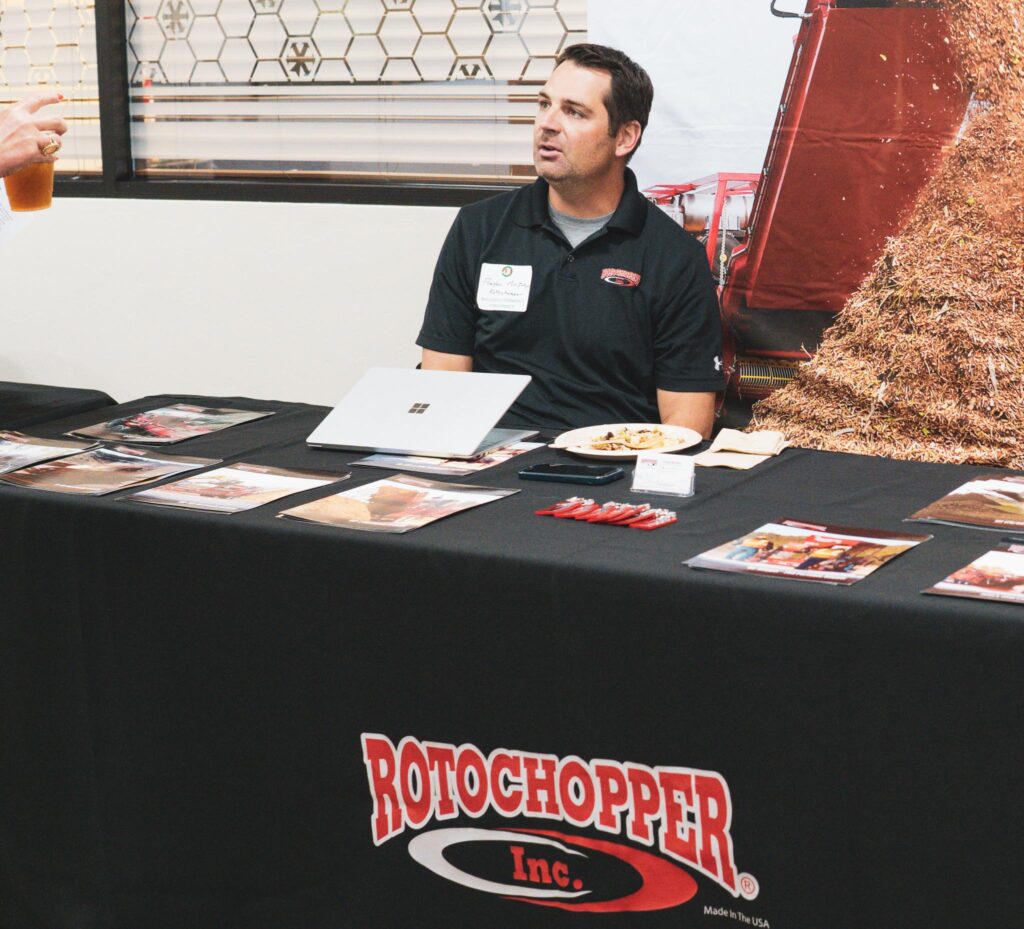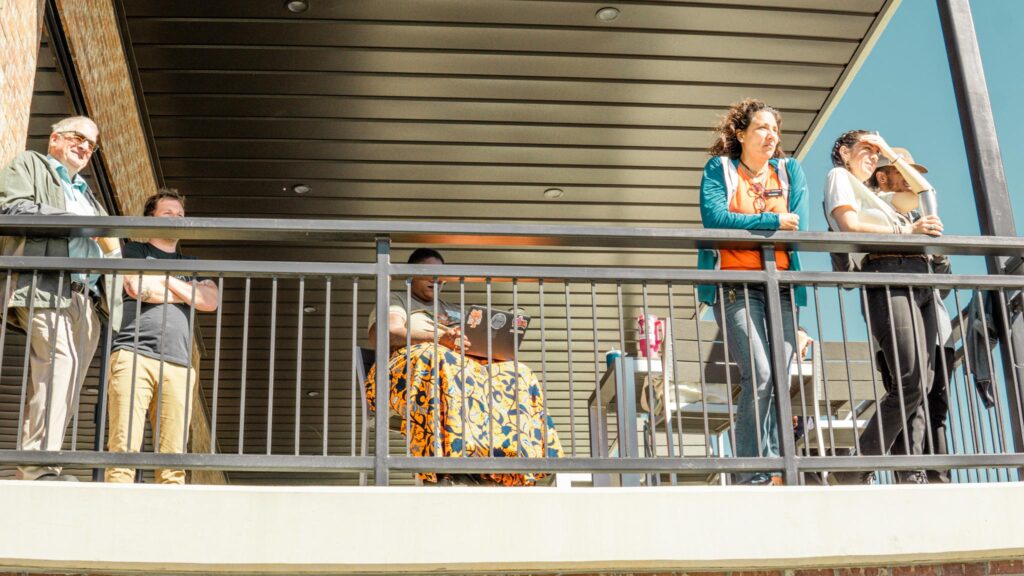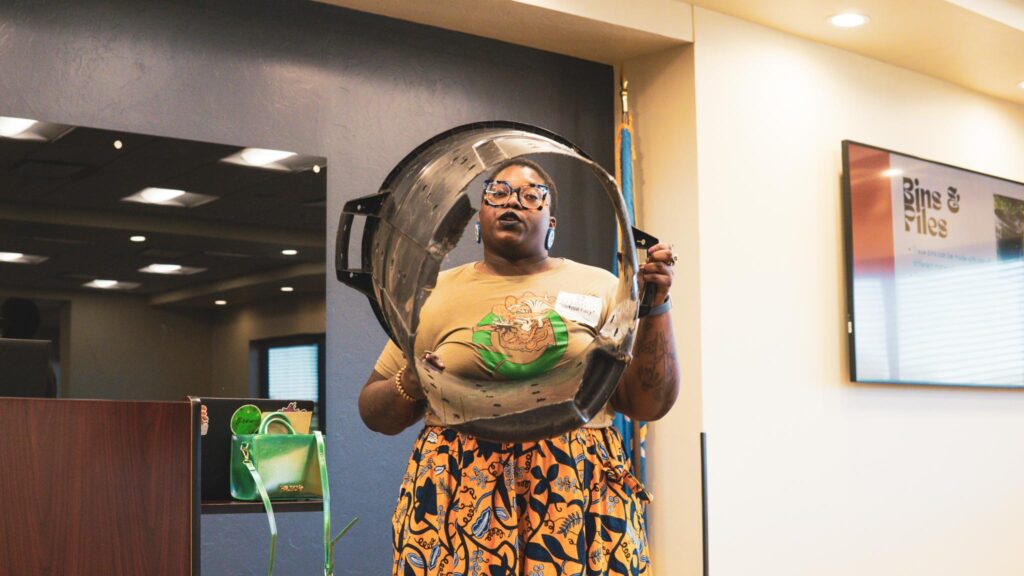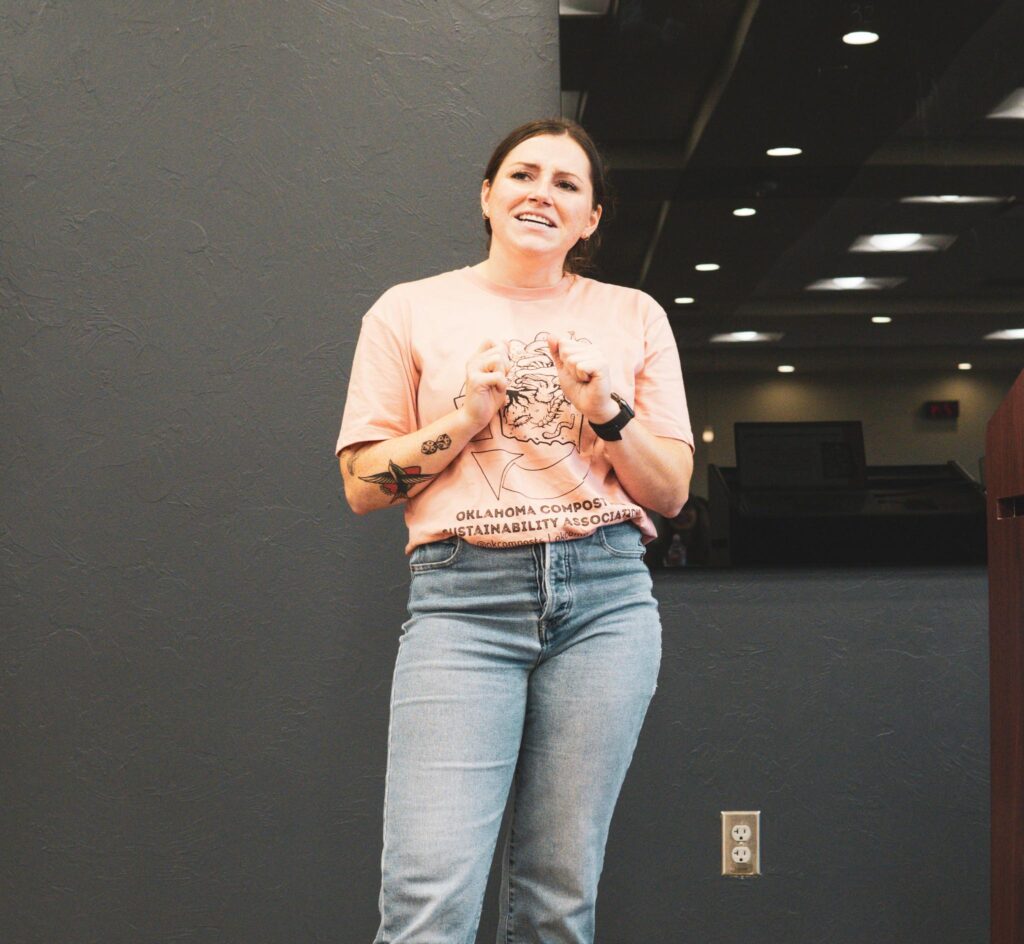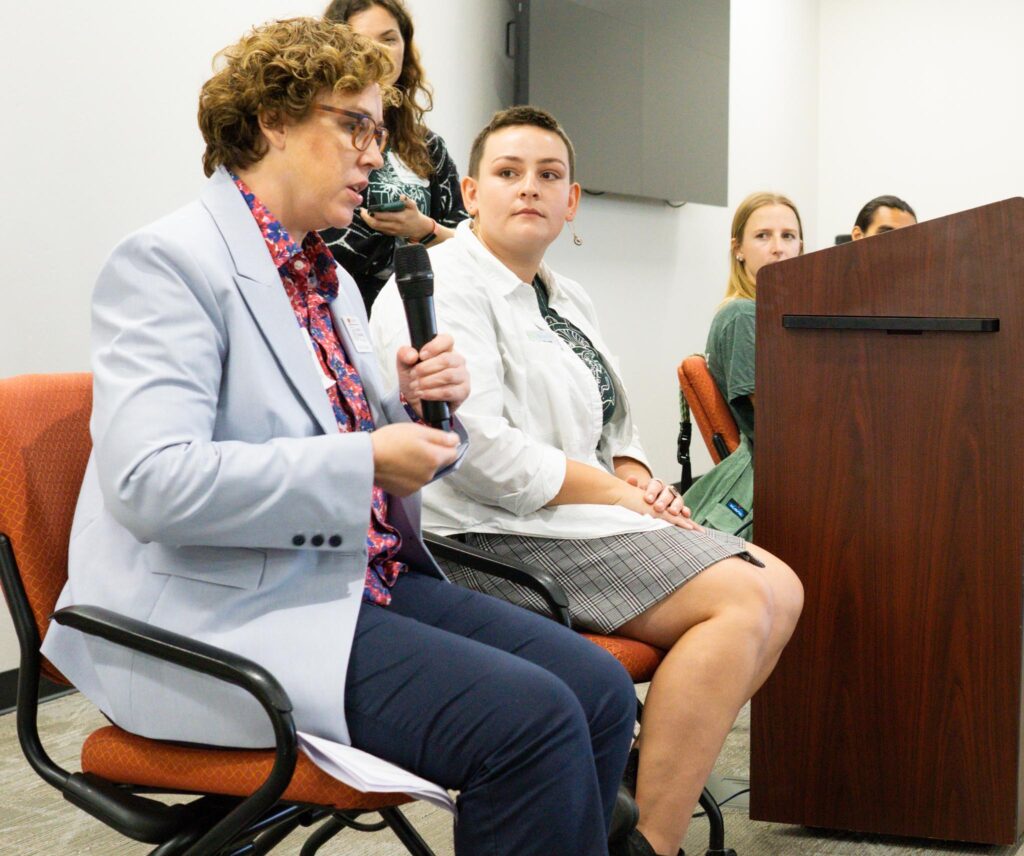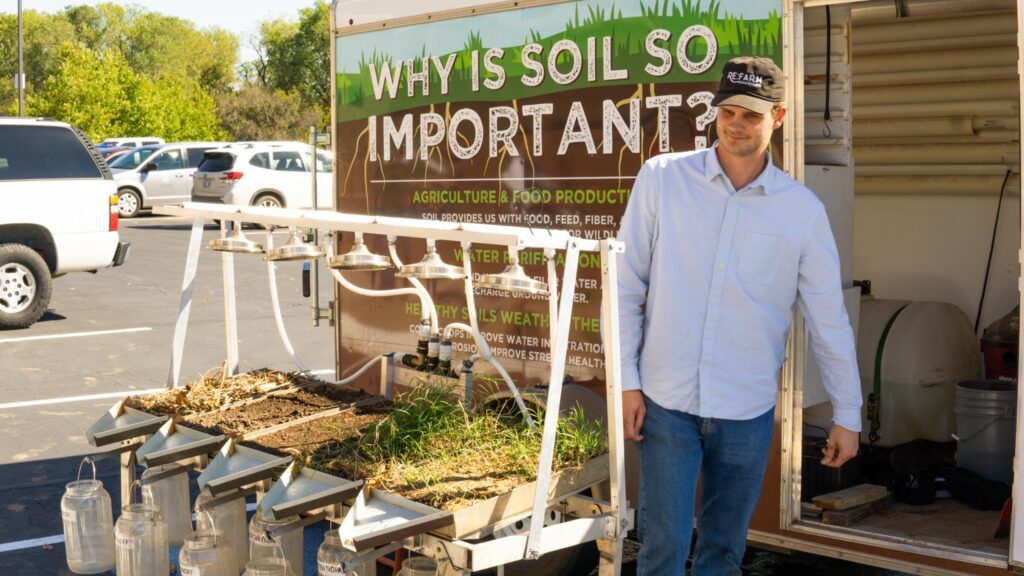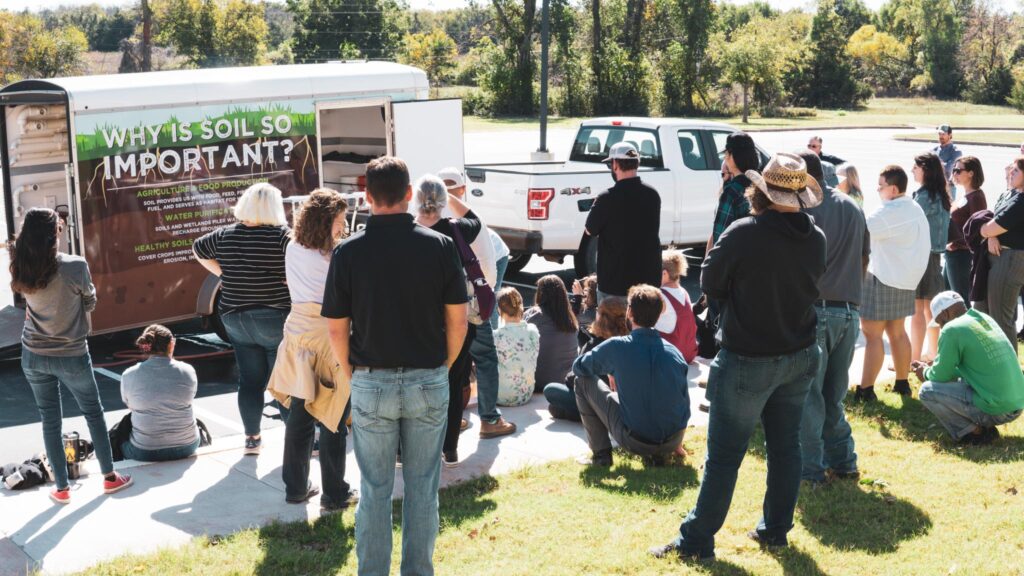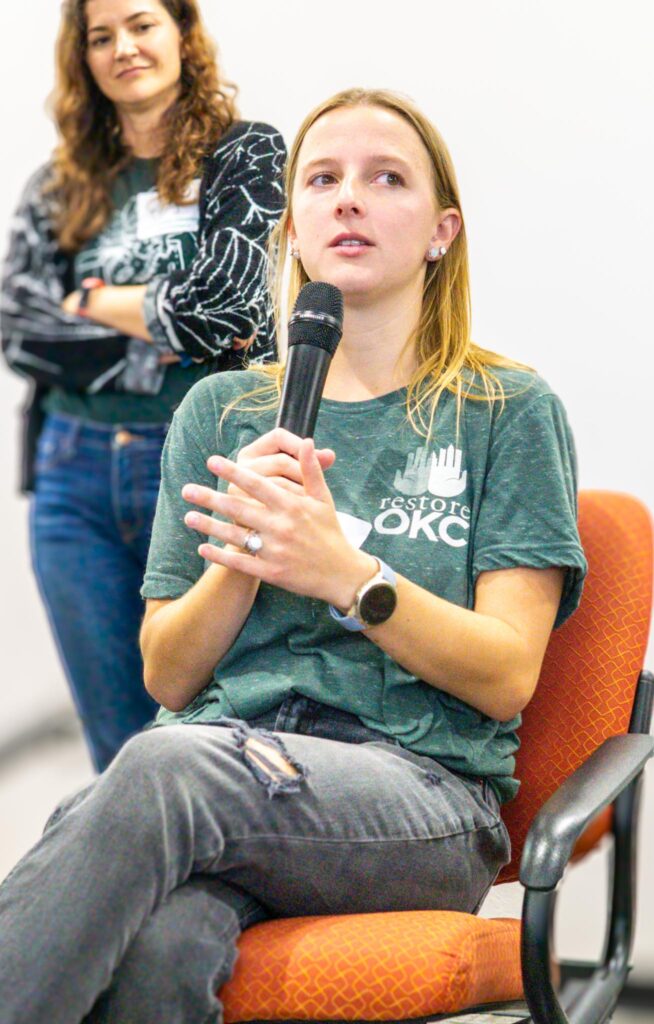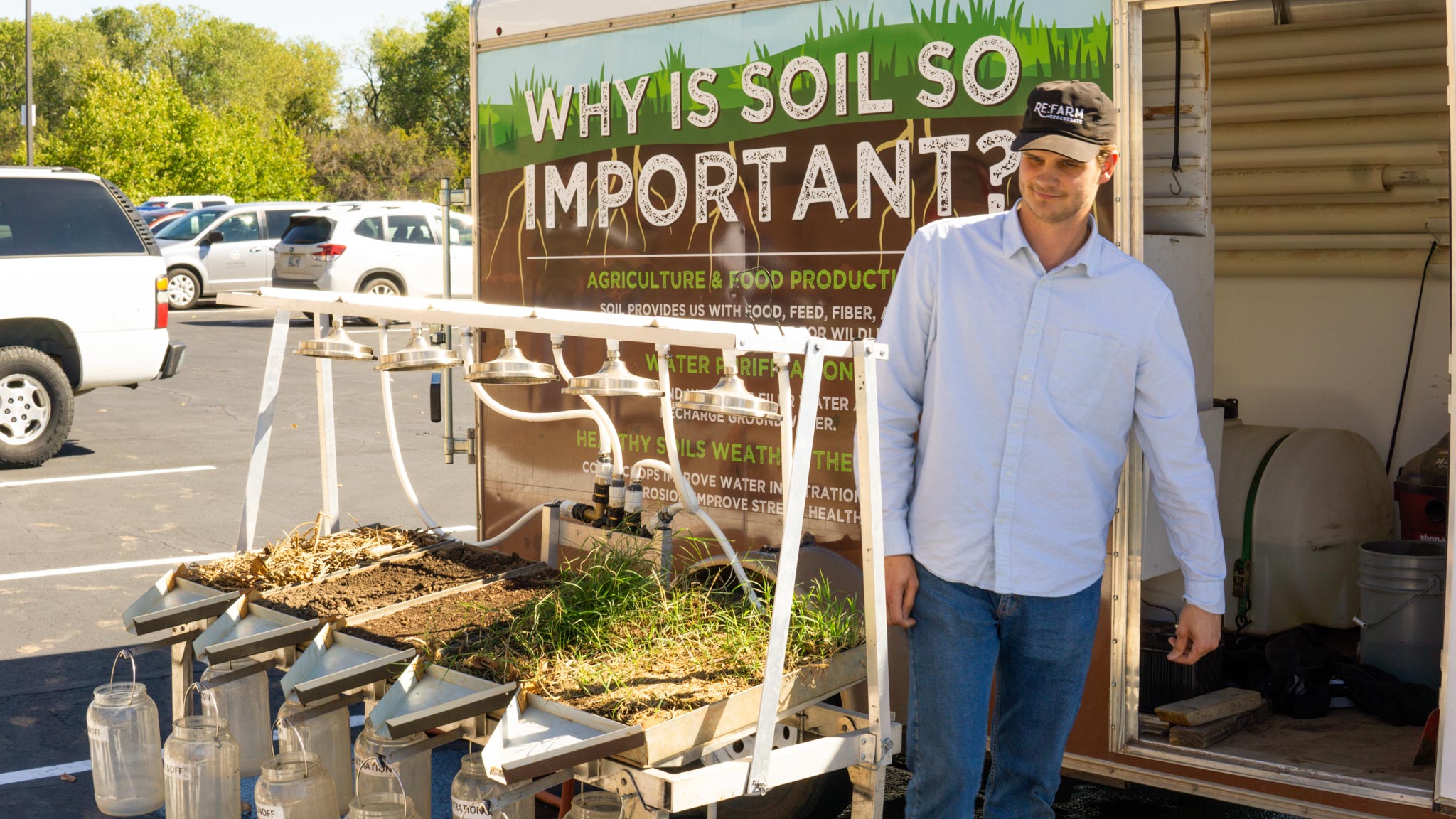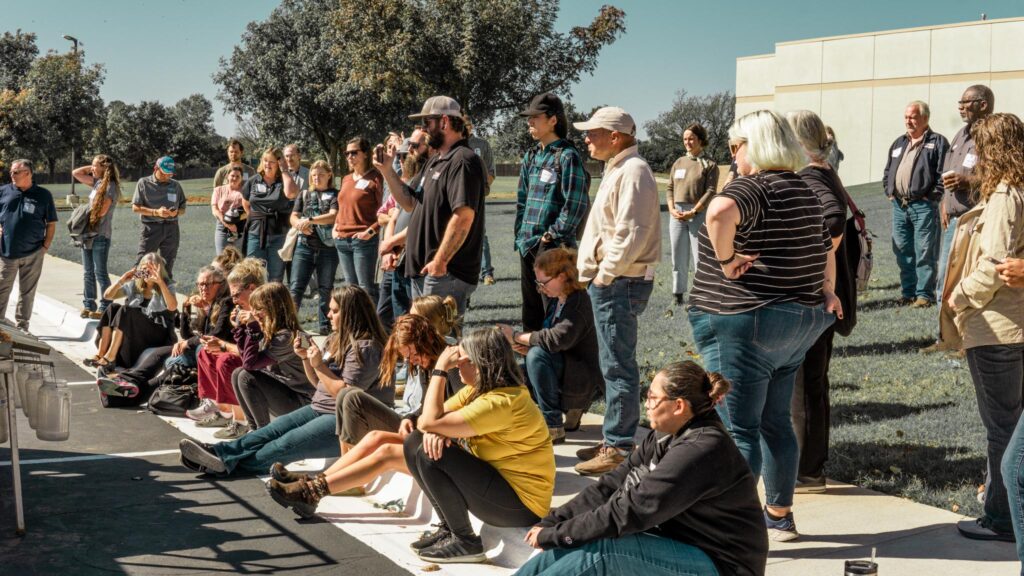
Thanks to all you compost enthusiasts who made it to this year’s Oklahoma Compost Conference! Your interest, registrations, and sponsorships made this conference possible, and for that, we are grateful.
The conference delivered a day filled with inspiration, education, and networking opportunities.Our theme, “Advocating for Solutions: Activating the Power of Compost,” drew in new supporters eager to explore the transformative potential of composting and how to advocate for the industry. The speakers, workshops, and panel discussions were impressive, according to your feedback and the board’s!
Linda Waldt-Norris, from the US Composting Council, set the tone with a powerful keynote on composting’s role in regenerative agriculture and climate change mitigation. She highlighted the impact the compost industry can have on environmental sustainability, sharing insights into its current state and potential to tackle climate challenges.
One memorable session led by Sarah Pottle from Rust Belt Fibershed explored the network of regenerative fiber farmers in the Rust Belt Region. Pottle showcased the possibilities of working with local resources, emphasizing a ‘soil to soil’ fashion and textile system that goes beyond traditional composting. She explained the need for a circular textile system and the creative possibilities it opens up. She revealed our nearest fibershed in the Ozarks.
The panel discussions reflected the diverse impacts of composting. The “Compost Youth Education” panel underscored the importance of teaching composting practices to K-12 students, showing the potential for youth-driven initiatives to shape a more sustainable future.
Another excellent panel, “Composting on the Hill,” brought Linda Norris Waldt and Nabilah Rawdah together to discuss the legislative aspects of composting advocacy. This session gave insights into navigating political landscapes and highlighted the need for joint efforts to drive policy changes supporting composting initiatives.
Marcus Long from the Oklahoma County Conservation District led a hands-on demonstration on soil erosion, a critical issue mitigated through compost use. We gained practical knowledge on erosion control techniques, reinforcing the real-world applications of compost.
The 9th annual Oklahoma Compost Conference was a success. I hope you left inspired and equipped with the knowledge needed to advocate for composting solutions in your communities. As you return to your respective spheres of influence, carry with you a renewed commitment to activating the transformative potential of compost for a more sustainable and regenerative future in Oklahoma and beyond. Cheers to composting!
